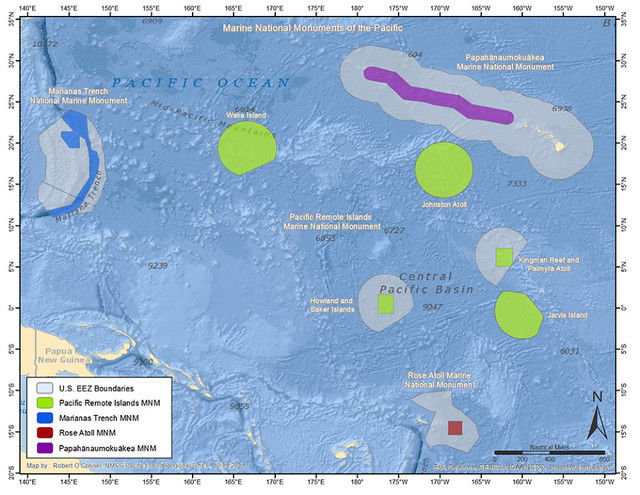LIHUE — An infusion of more than $1 million in federal money has been promised to support research on marine species in the Pacific Ocean. Some on Kauai are hoping the money will deepen people’s connection to the ocean and
LIHUE — An infusion of more than $1 million in federal money has been promised to support research on marine species in the Pacific Ocean.
Some on Kauai are hoping the money will deepen people’s connection to the ocean and others say it should be used for action instead of study.
“It is a critical time for us to learn that the ocean and its animals are just as related to us as our own family is,” said Patrick Ching, a Hanalei artist and former Fish and Wildlife Service wildlife ranger.
He continued: “I hope people will grow to care for the sea and they care for themselves.”
U.S. Sen. Brian Schatz, D-Hawaii, on Thursday announced the National Oceanic and Atmospheric Administration money, $1.3 million, will be awarded to the Joint Institute for Marine and Atmospheric Research at University of Hawaii Manoa.
Gordon LaBedz, a Poipu conservationist involved in Surfrider Kauai Chapter and Kohola Leo, said conservation, preservation and restoration should be the priorities for the money.
“We know what the problems and solutions are already,” LaBedz said.
The money is targeted for research on marine animals within the Pacific Ocean, including Papahanaumokuakea Marine National Monument.
Schatz’ announcement comes on the heels of a decision by the Hawaiian Islands Humpback Whale National Marine Sanctuary Advisory Council to send a letter asking the Trump Administration to maintain the status of the monuments under federal review.
“We hope to accomplish all decision makers involved in the review process to retain the boundaries and regulations of Papahanaumokuakea Marine National Monument,” said Nina Monasevitch, Kauai County seat for the sanctuary advisory council.
The letter requests review of three technical factors before a decision is made: an analysis of acreage affected and an analysis of management costs, an analysis of the adequacy of any required tribal consultations before the designations or expansions, and the impacts and costs associated with potential energy and mineral exploration and production.
“The council believes that the natural treasures and unique cultural connection to Papahanaumokuakea is of infinite value to the future health of the planet,” advisory council members said in their letter.
The health of the monument affects the health of the populated Hawaiian Islands, and the well being of all of the Hawaiian Islands and the people should be protected, advisory council members said in their letter.
President Donald Trump implemented the first Offshore Energy Strategy, aimed at exploring energy options and mineral operations in protected marine areas on April 28.
That’s days after the April 26 announcement that the Trump Administration would be reviewing the status of national monuments throughout America.
The sanctuary’s advisory council barely missed the cut-off for public comments on the issue, too, and had to convene an emergency session just to approve the letter before the June 26 deadline.


